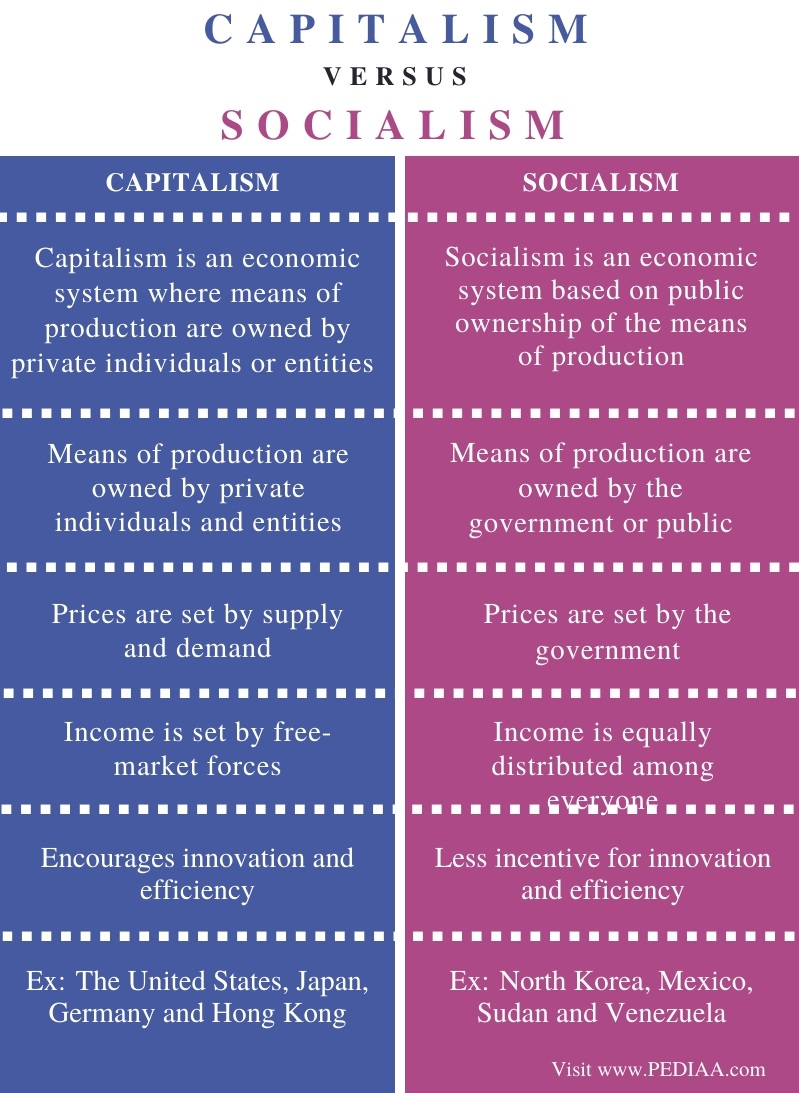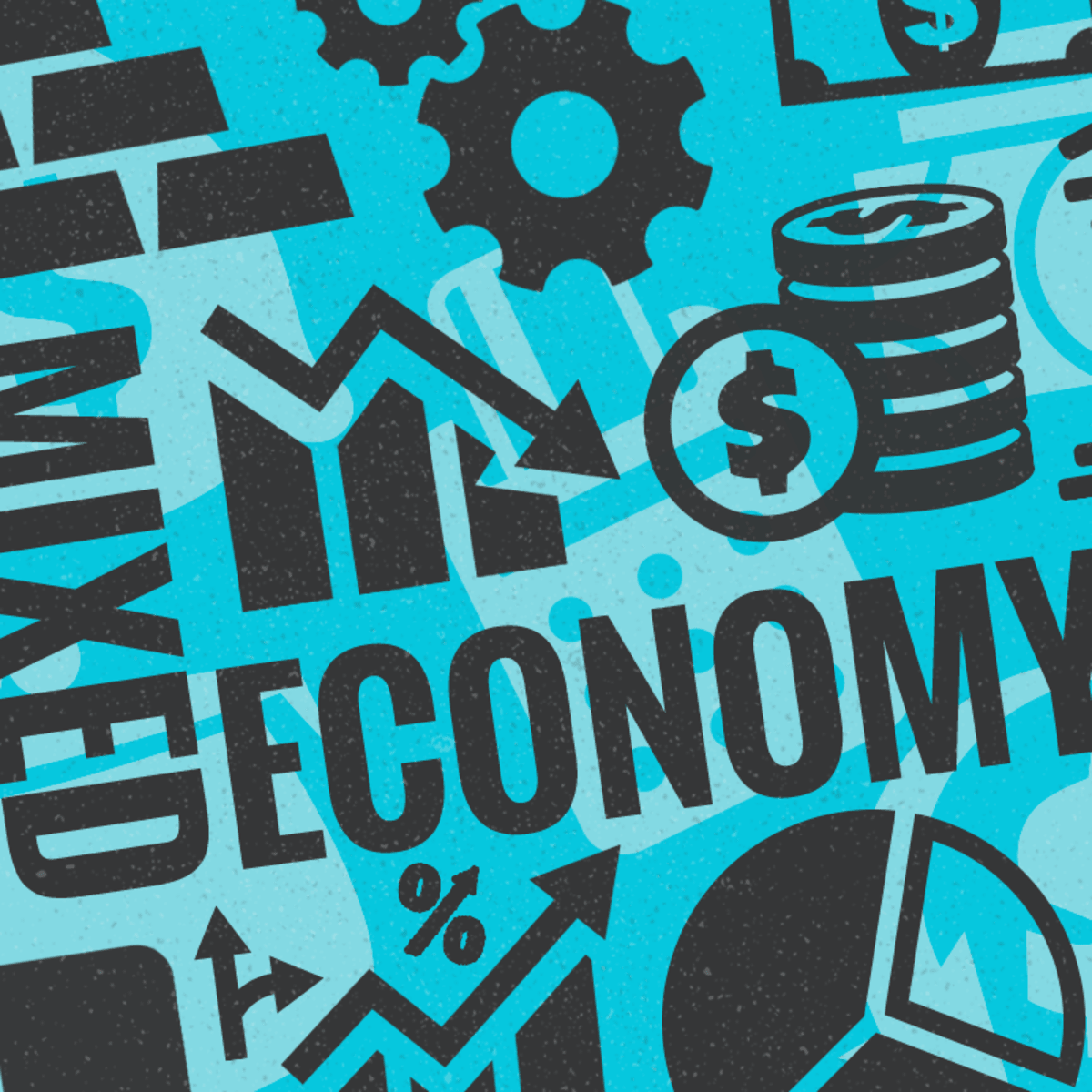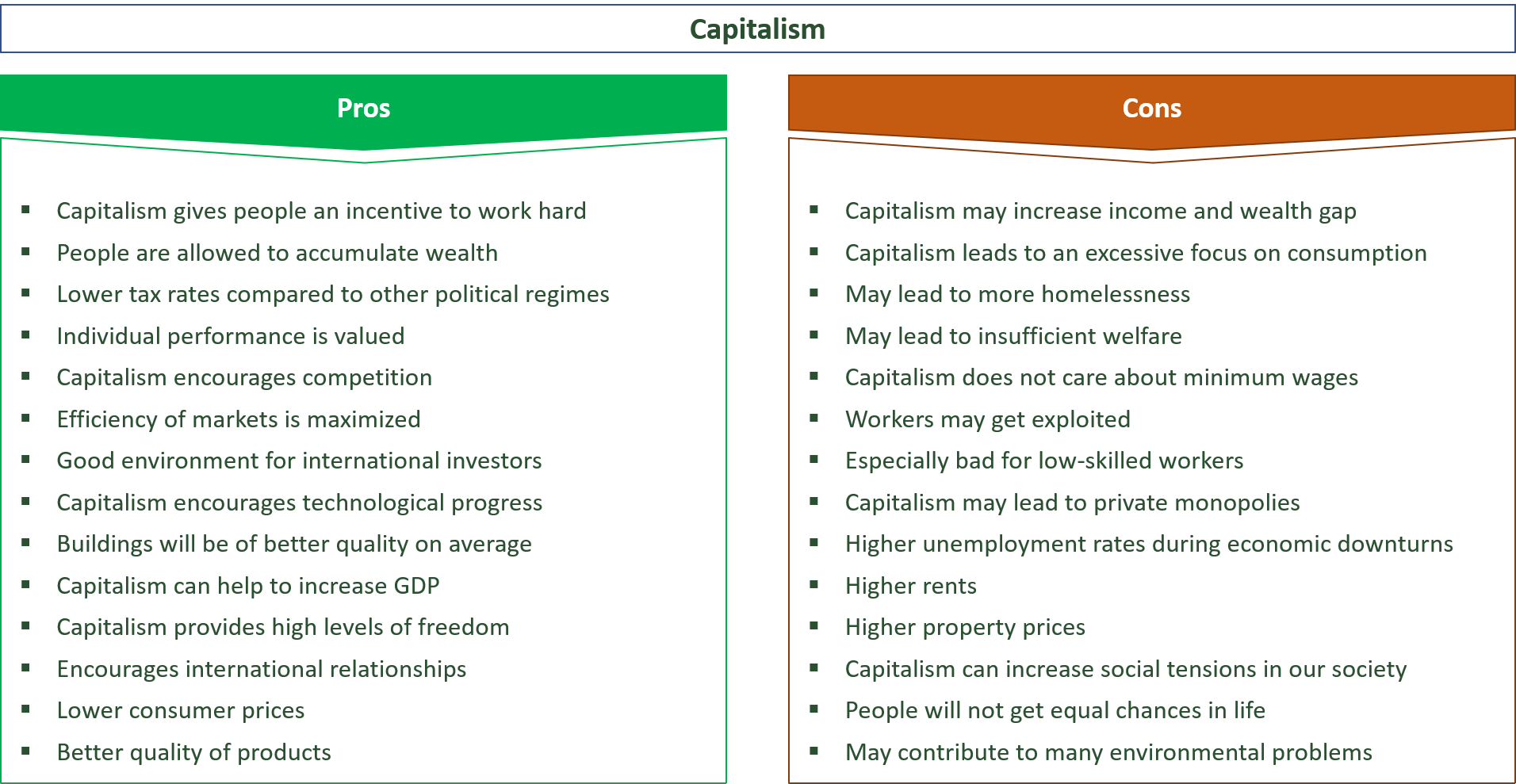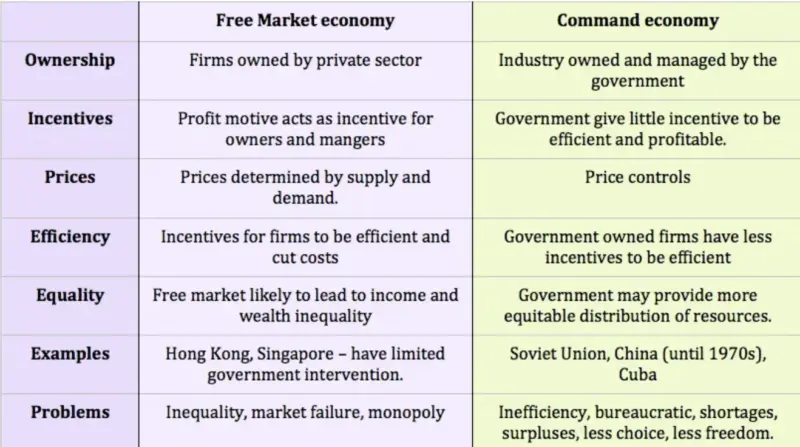A capitalist economy is a type of economic system in which the means of production and distribution are privately owned and operated for profit. In a capitalist economy, the prices of goods and services are determined by the market, rather than being set by the government. This means that prices are driven by supply and demand, rather than being based on the cost of production or some other factor.
There are several pros to a capitalist economy. One major advantage is that it provides a strong incentive for innovation and economic growth. Because businesses are trying to maximize their profits, they are constantly searching for ways to improve their products and processes in order to increase efficiency and reduce costs. This can lead to the development of new technologies and the introduction of new products and services, which can benefit consumers and drive economic growth.
Another advantage of a capitalist economy is that it allows for a wide range of individual choice. Consumers are free to choose which products and services they want to purchase, and businesses are free to produce and sell whatever they believe will be profitable. This gives individuals the freedom to make their own decisions about how to spend their money and allows businesses to respond to consumer demand.
However, there are also several cons to a capitalist economy. One major disadvantage is that it can lead to income inequality. Because businesses are focused on maximizing profits, they may not always be willing to pay their workers a fair wage. This can result in a small group of people accumulating wealth while the majority of the population struggles to make ends meet.
Another disadvantage of a capitalist economy is that it can be unstable. Because prices are determined by supply and demand, they can fluctuate dramatically in response to changes in the market. This can lead to economic booms and busts, as well as periods of high inflation or deflation.
A capitalist economy also has the potential to create environmental problems. Because businesses are focused on maximizing profits, they may not always prioritize environmental concerns. This can lead to practices that harm the environment, such as pollution or the overuse of natural resources.
In conclusion, a capitalist economy has both pros and cons. While it can provide a strong incentive for innovation and economic growth and allow for a wide range of individual choice, it can also lead to income inequality, economic instability, and environmental problems. It is important for any society to carefully consider the potential costs and benefits of a capitalist economy before adopting it as the dominant economic system.








